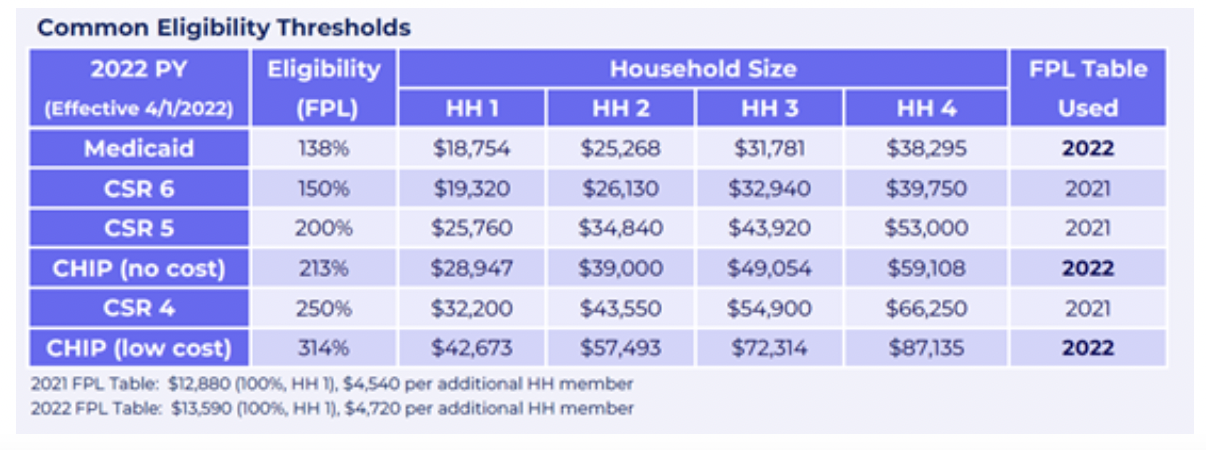- Distance, Workforce Shortages Complicate Mental Health Access in Rural Nevada Communities
- Bird Flu Is Racing Through Farms, but Northwest States Are Rarely Testing Workers
- After Helene, Clinician Teams Brought Critical Care To Isolated WNC Communities
- The Biden-Harris Administration Supports Rural Health Care
- Biden-Harris Administration Announces $52 Million Investment for Health Centers to Provide Care for People Reentering the Community after Incarceration
- On National Rural Health Day, Reps. Sewell and Miller Introduce Bipartisan Legislation to Support Rural Hospitals
- Terri Sewell Cosponsors Bill Reauthoring Program to Support Rural Hospitals
- HRSA: Inclusion of Terrain Factors in the Definition of Rural Area for Federal Office of Rural Health Policy Grants
- DEA, HHS: Third Temporary Extension of COVID-19 Telemedicine Flexibilities for Prescription of Controlled Medications
- Celebrating National Rural Health Day
- Public Inspection: DEA, HHS: Third Temporary Extension of COVID-19 Telemedicine Flexibilities for Prescription of Controlled Medications
- CDC Presents a Five-Year Plan for Rural Healthcare
- Talking Rural Health Care with U of M
- Kansas Faith Leaders 'Well Positioned' To Help Fill Mental Health Care Gaps in Rural Areas
- The CDC Wants More Kansas Farm Workers to Get Their Flu Shots This Season
The Jennifer S. Cwynar Community Achievement Award Announced
April 7, 2022
Student Receives Jennifer S. Cwynar Community Achievement Award
University Park, Pa. – Maira Nawaz, a student in the Integrated Undergraduate/Master of Health Administration program within the Penn State Department of Health Policy and Administration (HPA), received the 2022 Jennifer S. Cwynar Community Achievement Award in April 2022. Nawaz, of Mechanicsburg, Pennsylvania, is also pursuing a minor in information sciences and technology.
The award from the Pennsylvania Office of Rural Health (PORH) recognizes community achievement by a Penn State senior majoring in Health Policy and Administration who has demonstrated service and commitment to a community or an underserved population, preferably, but not exclusively, in a rural area of Pennsylvania. The award was established in memory of Jennifer S. Cwynar, a 2008 graduate of HPA and a 2008 undergraduate intern at PORH.
Nawaz was nominated by Diane Spokus, Ph.D., M.Ed., MCHES®, associate director of professional development in HPA. Spokus lauded Nawaz for her dedicated and detail-oriented work ethic, commitment to community service, and her focus on public health. She noted that Nawaz can be depended on to follow through and continually seeks professional development opportunities and service to others. “Students like Maira, who participate in various internship experiences, and who are involved in clubs and volunteer their time to worthwhile causes, are excellent role models. They will be great future health care leaders.”
During her academic career, Nawaz expanded her knowledge through internships at Mount Nittany Physician Group Primary Care practices in rural central Pennsylvania; Atlantic Health System in New Jersey; the American Lung Association; and WellSpan Health in York, Pennsylvania. Nawaz broadened her operational and administrative skills by standardizing the rooming process for patients, calculating Medicare net revenue, streamlined guidelines, analyzing and evaluating insurance enrollment data, assisting in improving interactive voice response systems and member websites, and creating user stories for members to improve customer satisfaction during support calls. She also executed smoking cessation
tasks such as Amazon’s Alexa project, a Juul costs project, and smoking prevalence in veterans; organized health promotion community events; wrote articles for local newspapers on moral courage; and worked with the LatinX community to improve health care opportunities and awareness. These experiences gave her a deep appreciation for the social determinants of health and population health.
While at Penn State, Nawaz served as the guest speaker liaison for the Penn State Chapter of the American College of Healthcare Administrators (ACHCA) Club Executive Team. She participated in the UNICEF Club, was a member of the Pakistani Student Association, and volunteered at the Central PA Food Bank, Country Meadows Senior Center, and was a Holy Spirit Hospital Junior Volunteer.
“We are very pleased to present this award to Maira Nawaz and to honor the legacy of Jennifer Cwynar, who was an exceptional student and intern with our office,” said Lisa Davis, director of PORH and outreach associate professor of HPA. “This is one way in which we can encourage excellence in those who will become leaders in advocating for the health of vulnerable populations.”
PORH was formed in 1991 as a joint partnership between the federal government, the Commonwealth of Pennsylvania, and Penn State. The office is one of 50 state offices of rural health in the nation and is charged with being a source of coordination, technical assistance, networking, and partnership development.
PORH provides expertise in the areas of rural health, population health, quality improvement, oral health, and agricultural health and safety. PORH is administratively located in the Department of Health Policy and Administration in the College of Health and Human Development at Penn State University Park.
To learn more about the Jennifer S. Cwynar Community Achievement Award or the Pennsylvania Office of Rural Health, visit porh.psu.edu.
###
Editors: For additional information, please contact Karen Burke, Outreach Coordinator, Pennsylvania Office of Rural Health, at 814-865-3647 or klb520@psu.edu.
Lead Exposure in Pennsylvania Leads to Lead Screenings
A new Pennsylvania Department of Health (DOH) report shows that one in three babies on Medicaid do not get tested as required and babies in rural counties test positive at the same rate as babies in urban/suburban areas. Two new reports, the 2020 Childhood Lead Surveillance Report and the 2017-2018 Birth Cohort Analysis provide key data highlights and a comprehensive presentation recording that led to a great conversation about lead in paint as the primary source of exposure in the commonwealth, the need for high-risk mapping at the municipal level for effective health planning, and more. DOH also published a peer-reviewed article about their cohort data.
The National Infant Immunization Week Begins
The week of April 24-30 is National Infant Immunization Week (NIIW), a yearly observance highlighting the importance of protecting children two years and younger from vaccine-preventable diseases (VPDs). This year is a critical year to ensure that families stay on track for children’s routine checkups and recommended vaccinations following disruptions from COVID-19. A Center for Disease Control & Prevention report (CDC Report) released in May 2020 found a troubling drop in routine childhood vaccination because of families staying at home. On-time vaccination is critical to provide protection against potentially life-threatening diseases. Click here to learn more about NIIW.
FCC Launches New Affordable Connectivity Program
The Federal Communications Commission (FCC), acknowledging the importance of connection, is offering a new program known as the Affordable Connectivity Program (ACP). This program is meant to help low-income individuals pay for their internet services. With the rapid expansion of telehealth since the start of the pandemic, interest in connection to the internet has expanded. For many, the cost can be an added barrier to receiving care. The program offers multiple forms of assistance:
· Up to a $30/month discount on internet service
· Up to a $75/month discount for households on qualifying Tribal lands
· A one-time discount of up to $100 for a laptop, tablet, or desktop computer (with a co-payment of more than $10 but less than $50)
Eligibility requirements and the application for your patients can be found here.
Mobilizing Health Care Workforce Via Telehealth Commences
ProviderBridge.org was created by the Federation of State Medical Boards through the CARES Act and the Federal Office of Rural Health Policy (FORHP)-supported Licensure Portability Grant Program. The site provides up-to-date information on emergency regulation and licensing by the state as well as a provider portal to connect volunteer healthcare professionals to state agencies and healthcare entities.
COVID-19 Cardiac Risk is Much Higher than Vaccination
Concerns about cardiac risk are often the source of vaccine confidence issues. Data from 40 health care systems participating in a large network found that the risk for cardiac complications was significantly higher after COVID-19 infection than after mRNA COVID-19 vaccination for both males and females in all age groups. Read the CDC study.
Medicaid Option for Community-Based Mobile Crisis Intervention Services Takes Effect
The Centers for Medicare and Medicaid Services (CMS) reminded states that Medicaid agencies have the option to implement qualifying community-based mobile crisis intervention services in their state plans. The option took effect on April 1, 2022, as per the American Rescue Plan (ARP). CMS also awarded planning grants to 20 state Medicaid agencies, including Pennsylvania, for the purpose of implementing the option. CMS guidance states that programs must include health centers as part of the intervention services teams.
Pennie System Enhancements and Changes in Pennsylvania Start in April
Changes made to the Pennsylvania Assister Dashboard and Pennie Customer Application will ease enrollment. Additional information, including screens to review enrollment details, customer enrollment history, coverage period by member, and premium history are available to review to assist with answering questions and removing the need to contact the Pennie Call Center. Income eligibility thresholds have been updated with 2022 Federal Poverty Level (FPL) data for Medicaid and CHIP eligibility as of April 1, 2022. Pennie continues to use 2021 FPL tables for the 2022 plan year eligibility.
Pennsylvania Insurance Department Promotes Collection of Race and Ethnicity Data
Acting Pennsylvania Insurance Commissioner Michael Humphreys announced the Pennsylvania Insurance Department (PID) has submitted a statement of policy to the Pennsylvania Bulletin that will allow insurers to ask applicants to voluntarily provide race and ethnicity data on insurance applications in an effort to promote equity initiatives. The new statement of the policy ends the enforcement of a prohibition on data collection originally published in 1969. Pennsylvania’s insurance laws clearly prohibit discrimination, including discrimination based on race and ethnicity. PID clarifies that both questions as to “race or color” and data collection will be permitted when asked or collected in a manner that promotes health equity. Unfair discrimination remains prohibited.
HHS Extends Public Health Emergency for 90 Days to July 15
U.S. Department of Health and Human Services Secretary Xavier Becerra has extended the public health emergency (PHE) by 90 days to July 15, 2022. The Centers for Medicare & Medicaid Services has said it will give states 60-days’ notice before the end of the PHE.
